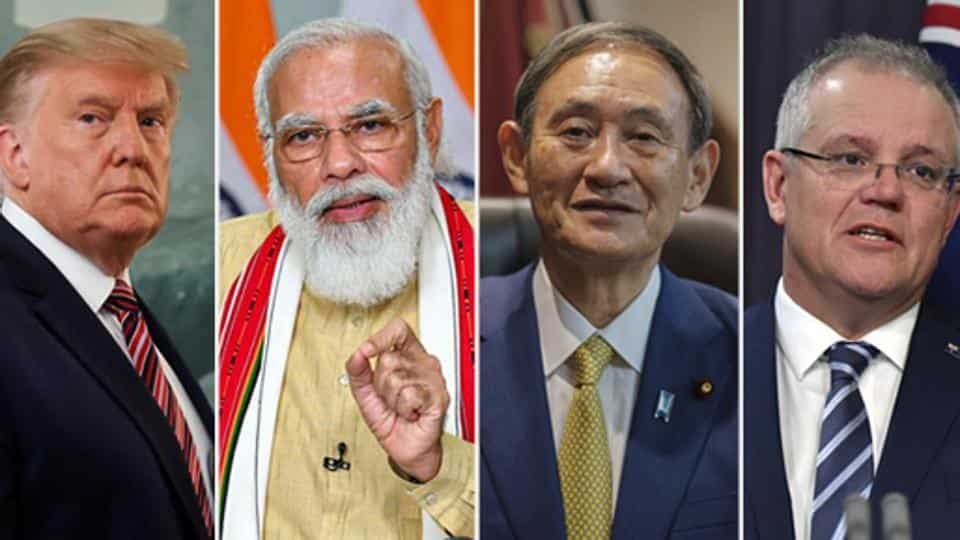
As the world is entering a period of intense major power rivalry with a shift in the balance of power from West to East, the recent geopolitical churnings indicate that the epicentre of this heightened competition will be the maritime region spanning the Indian Ocean and the Pacific Ocean – i.e. the Indo-Pacific. One of the most critical factors in the shaping and reordering of the Indo-Pacific region is undoubtedly the new assertiveness and expansionist policies of China which are impacting most of the regional as well as extra-regional powers. China’s revisionist behaviour has certainly forced countries in the Indo-Pacific region to rethink their China policy, reorient their resources and recalibrate their bilateral partnerships and multilateral engagements with other like-minded nations to face China challenge.
China’s revisionist behaviour has certainly forced countries in the Indo-Pacific region to rethink their China policy, reorient their resources and recalibrate their bilateral partnerships and multilateral engagements with other like-minded nations to face China challenge.
The Quad and the China Challenge
The geopolitical cooperation under the Quadrilateral Security Dialogue (Quad) framework among four democracies in the Indo-Pacific region – India, Japan, Australia and the US – is inextricably linked to China’s emergence as a great power with revisionist characteristics. All the Quad countries are concerned with the ‘Chinese dilemma’, although maybe in different strategic contexts or on a different scale and terms.
India’s perception of China emanates from its overall national security calculus and the threat on its northern land frontier across the Himalayas as well as in the Indian Ocean posed by Chinese attempts at changing the power equation in the region. US-China relations are also facing the most serious challenges as shown in America’s direct criticism of the Chinese Communist Party, claims about the origins of Coronavirus and rejection of China’s claims in the South China Sea which it calls unlawful. Japan also faces the territorial revisionism of China in the East China Sea and Australia triggered Beijing’s wrath when it demanded an independent inquiry into the origins of the Coronavirus.
India’s perception of China emanates from its overall national security calculus and the threat on its northern land frontier across the Himalayas as well as in the Indian Ocean posed by Chinese attempts at changing the power equation in the region.
Quad: Moving beyond China
The Quad partnership also has a broader perspective beyond China with a larger strategic objective – a) To promote Rules-based international order and Respect for international laws, b) To cooperate for an inclusive ‘Free and Open Indo-Pacific’, c) To improve rather than replace the existing mechanisms in the Indo-Pacific region, d) To cooperate on Humanitarian Assistance and Disaster Relief (HADR), and e) To strengthen the Maritime Order in the Indo-Pacific through collaboration in collective defence and security of the region.
The regional architecture in the Indo-Pacific is an enduring and credible framework for diplomatic and security collaboration among Quad partners. In meeting the China challenge and for a broader agreement and consensus among Quad nations, all the four countries – India, Japan, Australia and the US- needs to focus on a) Achieving greater operational synergy among the four Navies, b) Improving the maritime infrastructure connectivity in the Indo-Pacific region by mobilising public as well as private sector investment to build economically sustainable and high-quality infrastructure projects, c) Building an institutional framework for sharing of maritime security information among the four countries.
Under the Belt and Road Initiative (BRI), China is either building or funding critical infrastructure at various places across the globe. The skyrocketing debt to Beijing at many places from BRI has resulted in China taking control of infrastructure assets as forfeited collateral when borrowers have defaulted. In terms of building infrastructure, the Quad’s track record in the Indo-Pacific region is still underdeveloped in concrete outcome-oriented format but the potential for Quad grouping to work together either for the bidding, financing, building or securing sustainable infrastructure projects in a transparent manner is immense.
Quad’s track record in the Indo-Pacific region is still underdeveloped in concrete outcome-oriented format but the potential for Quad grouping to work together either for the bidding, financing, building or securing sustainable infrastructure projects in a transparent manner is immense.
In the context of shifting supply chains from China to other countries during the ongoing COVID times, a recent India-Japan-Australia Economic Ministers meeting opened up the doors for new opportunities at the global-scale in the economic and technological field by launching a new initiative of “Supply Chains Resilience”. The necessity and potential to enhance the resiliency of supply chains will further enhance the close regional cooperation among Quad countries and other regional powers in the Indo-Pacific.
India and the Quad
India’s participation in the Quad needs to be viewed in the context of the changing balance of power in the Indo-Pacific region. India’s engagement in the Quad meets its overall national security interest of minimising the direct security risks through a collaborative approach in Defence, intelligence sharing, capacity building and use of technology in today’s modern warfare.
However, India’s Quad engagement should not be seen as if India is going to join the US alliance system. Till now Quad serves the limited purpose of geopolitical signalling and improving coordination among four like-minded and capable maritime powers in the Indo-Pacific region to meet a common challenge and also craft an alternative pivot around which other regional powers can find a model of regional cooperation for collective security and development.
India’s “Indo-Pacific Oceans’ Initiative (IPOI)” which was launched by Prime Minister Narendra Modi in Nov 2019, is also a pivotal start in terms of re-drawing the existing regional cooperation architecture and mechanisms in the Indo-Pacific region. The main thrust area for cooperation under the Indo-Pacific Ocean Initiative includes Maritime Security, Maritime Resources, Capacity Building, Disaster Risk Reduction and Management, Maritime Ecology, Resource Sharing etc.
At a time when India is pushing back against Chinese expansionism on the Line of Actual Control (LAC) in Eastern Ladakh in the Himalayas, the upcoming Quad ministerial meet in next few weeks in New Delhi sends a strong signal to China that India’s core interests are solidifying in the Quad grouping centered around security concerns in the Indo-Pacific. India has not yet invited Australia to the Malabar trilateral naval exercise but the current geopolitical churnings indicate that inviting Australia to the Malabar at this juncture would make it clear to Beijing that four countries are standing together within the larger Indo-Pacific construct.
The upcoming Quad ministerial meet in next few weeks in New Delhi sends a strong signal to China that India’s core interests are solidifying in the Quad grouping centered around security concerns in the Indo-Pacific.
Conclusion
The objective of building on the strong relations that the Quad nations already have with each other into an institutional and structured format will help them to synergise their respective strength to ensure a “Free and Open Indo-Pacific” region. It will also assist the Quad nations in advancing the force-posture cooperation in the Indo-Pacific capable of deterring coercive acts and the use of force by China.






Great work sir